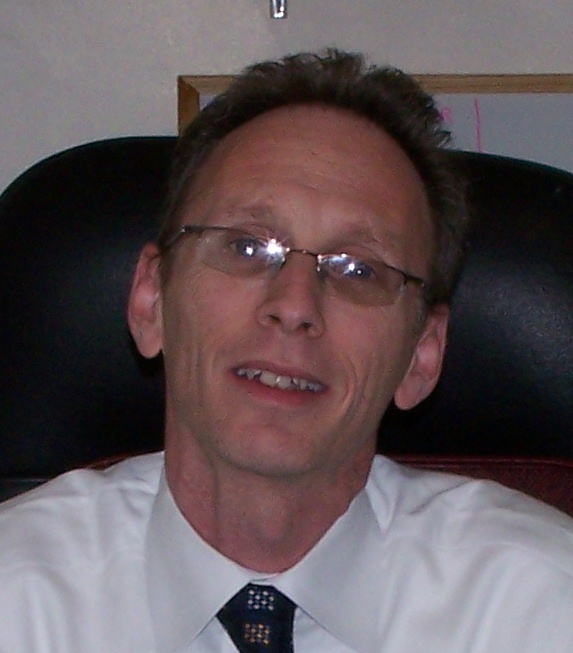From the other side of the bench: Appreciating the imperfections
Issue of Oct. 31, 2008 / 2 Cheshvan 5769
Before delving into this week's article, allow me to detour and offer
some election year advice having nothing to do with my intended topic. Do
not let the media decide who our next President should be. Do not let
eloquence or economic desperation decide. Do not let apathy decide. Do not
let allegiance to a particular party held by our grandparents decide. Do not
let the "throw the bums out" mentality decide our fate.
The next president of the United States will be tested here and abroad
and no one can claim to foresee every possibility and boast of a solution
now. The overriding criteria therefore (in my humble opinion) is, who has
been tested to perform under pressure. The next question I ask myself is
"who would my enemies prefer to deal with?" Answer that question and then
vote for the other guy. Yes, the enemy of my enemy is my friend, and the
friend of my enemy, I wonder about. So now let me begin what I had intended
to write about, and maybe by article¹s end, a connection to the above may be
found.
A few days before the Sukkot holiday began, my friend, his sons and I
built our sukkah. Actually, I watched, as I am not that handy with a hammer
and nails. One of my daughters complained that our sukkah was not as
"straight" as our neighbors. I, for one, love the perfection of the
imperfect. True, by comparison to our neighbors', our sukkah jutted out a
bit here and there, had a few warped cross beams and a broken door. But I
think there is something that makes the imperfect sukkah a lot more biblical
like.
I don¹t think they had pre-fabs back then, or snap together,
interlocking, house extension sukkahs, running water or heated tiles in the
desert (not that there is anything wrong with that).
At any rate, our sukkah in Lawrence was leagues ahead architecturally
speaking from our sukkah in Columbus, Ohio which I enjoyed as a kid. We
didn¹t have one matching board. They were mismatched beyond belief, warped,
bent, some framed, others not. Some boards were formed by the nailing
together of two smaller boards, remnants of larger boards that had broken
over the years. The cross beams, which were the sole means of support, were a
collection of broken, splintered two-by-fours which necessitated new nails
to bind them together every year. The entire sukkah looked like the remnants
of Noah's Ark, 1,000 years after the flood.
Each board had numerous markings on it, each contradictory. You see,
each year before we took the sukkah down, we numbered the boards so that the
next year assembly would be easier. But the next year we didn¹t know which
markings were the most recent ones, so each year our sukkah took on a
different shape. The entire structure looked like a wooden quilt. And yet,
it was the most perfect sukkah in the world and I miss it terribly. Knowing
that many Jews in Columbus, Ohio did not have a sukkah of their own, my
parents made a gala Kiddush each year for some 40 years on the first day of
Sukkos. The entire community was invited and hundreds converged in our
backyard.
There was no Chap-A-Nosh or Mauzone and everything was homemade.
Hundreds of baked goods, hundreds of stuffed cabbage rolls (imperfectly
shaped), vats of homemade chulent and platter after platter of homemade
gefilte fish and homemade chopped liver. I remember one year in particular
when the wind got the better part of our sukkah in the middle of the
Kiddush-lunch. The women ran into the sukkah to save the food, while the
men, filled with spirit and spirits, held the wobbly walls up with their
wobbly feet. When the last cake tray was evacuated, the men let go and the
sukkah fell quicker than today¹s stock market. It was the most perfect,
imperfect sukkah of my life. We rebuilt the sukkah on the intermediary days,
Chol Hamoed, and it remained intact with a slightly different configuration
for the final days of Sukkos.
Looking back, I view that imperfect sukkah as the story of our nation.
We are imperfect, we bend and sometimes break, but never to the point that
we can't rebuild. We rely on family and friends to hold on, to help us hold
on, for as long as we can. We have faith in ourselves, in our friends and in
our G-d that within imperfection lives perfection. That the imperfection in
our lives creates a comfort zone; something to laugh at; a reservoir of
memories and the comfort to know that we do not need to be perfect in any
ones eyes in order to find happiness.
In fact, quite the opposite is true. The more perfection we insist on,
the more unhappy we become. It is those that demand the perfect portfolio,
the perfect body, the perfect wife, the perfect children, perfect employment
and perfect health, that can not reconcile the imperfections that invariably
come our way.
I choose to smile at the "imperfections" of my life and try to derive
ironic messages from them. Something about the perfect "anything" gives me
pause for concern.
So, I won¹t be voting for the perfect candidate. I won¹t be voting for
the media darling with the gift of gab. I think I prefer a heart of gold
over a silver tongue. There, I found a connection.
David Seidemann is a partner with the law firm of Seidemann & Mermelstein.
He can be reached at (718) 692-1013 and at ds@lawofficesm.com.

 48.0°,
Overcast
48.0°,
Overcast 




